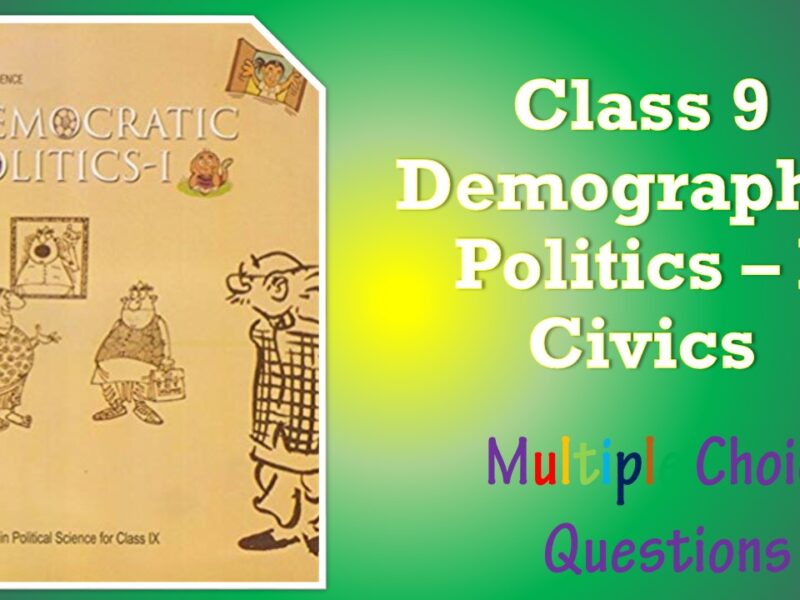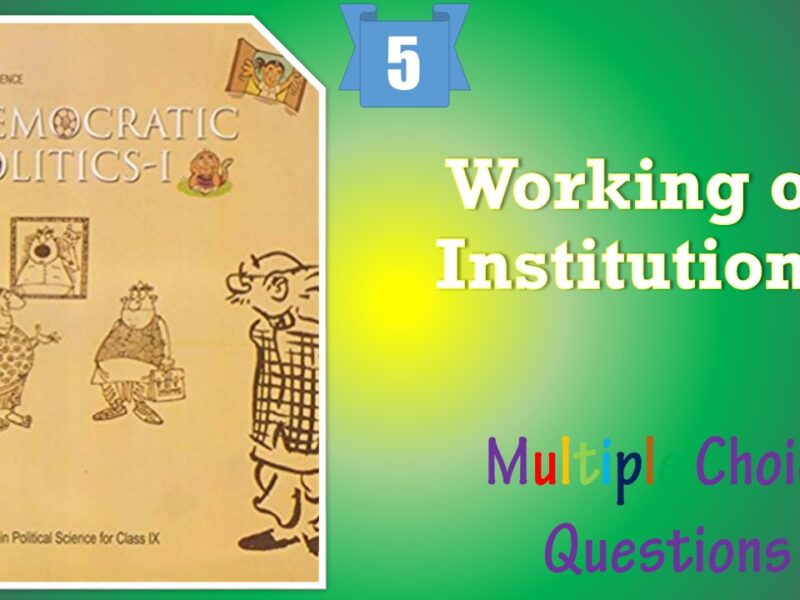CBSE Class 10 Social Science Chapter 4 Gender Religion and Caste Multiple Choice Questions with Answers. MCQ Class 10 Civics Gender Religion and Caste with Answers was Prepared Based on Latest Exam Pattern. Students can solve NCERT Class 10 Civics Gender Religion and Caste MCQs with Answers to know their preparation level.
Students who are searching for NCERT MCQ Questions for Class 10 Civics Gender Religion and Caste with Answers are compiled here to get good practice on all fundamentals. Know your preparation level on MCQ Questions for Class 10 Social Science with Answers. You can also verify your answers from our provided MCQ Class 10 Civics Gender Religion and Caste with Answers. So, ace up your preparation with MCQ of Chapter 4 Civics Objective Questions.
MCQ Class 10 Civics Gender Religion and Caste with Answers - Set - 4
Question 1:
The constitution:
(a) Does not prohibits discrimination on grounds of religion
(b) Prohibits discrimination on grounds of religion
(c) Allows only one religion
(d) None of the above
Correct Answer – (A)
Question 2 :
A communal mind often leads to a quest for political dominance of one’s:
(a) Own religious society
(b) Own religious community
(c) Own religious ideas
(d) None of the above
Correct Answer – (B)
Question 3 :
In India seats are reserved for women in:
A. Lok Sabha
B. State legislative assemblies
C. Cabinets
D. Panchayati Raj bodies
(a) A, B and D
(b) B, C and D
(c) B and C
(d) A and D
Correct Answer – (A)
Question 4 :
Identify two reasons that state that caste alone cannot determine elections in India.
A. No party wins the votes of all the voters of
a caste or community. i
B. Some political parties are known to favour some castes and are seen as their representatives.
C. No parliamentary constituency in the country has a clear majority of one single caste.
D. Mobilising and securing political support has brought new consciousness among the lower castes.
(a) A and C
(b) A and D
(c) B and C
(d) B and D
Correct Answer – (A)
Question 5 :
The distinguishing feature of communalism is:
(a) Followers of a particular religion must belong to one community.
(b) Communalism leads to the belief that people belonging to different religions can live as equal citizens within one nation.
(c) A communal mind does not lead to quest for political dominance of one’s own religious community.
(d) A secular constitution is sufficient combat communalism.
Correct Answer – (A)
MCQ Class 10 Civics Gender Religion and Caste with Answers
Question 6 :
Our constitution:
(a) Gives a special status to one religion
(b) Does not give a special status to any religion
(c) Favours two religions
(d) None of the above
Correct Answer – (B)
Question 7 :
Which among the following statements about India’s Constitution is wrong? It
(a) prohibits discrimination on grounds of religion.
(b) gives official status to one religion.
(c) provides to all individuals freedom to profess any religion.
(d) ensures equality of citizens within religious communities.
Correct Answer – (B)
Question 8 :
When we speak of gender divisions, we usually refer to:
(a) Biological difference between men and women
(b) Unequal roles assigned by the society to men and women
(c) Unequal child sex ratio
(d) Absence of voting rights for women in democracies.
Correct Answer – (B)
Question 9 :
Identify the statements which suggest that it is not politics that gets caste-ridden, it is the caste that gets politicised.
A. When governments are formed, political parties take care that representatives of different castes find a place in it.
B. Each caste group incorporates neighbouring castes which were earlier excluded.
C. Various caste groups enter into a coalition with other castes.
D. Political parties and candidates in elections make appeals to caste sentiments.
(a) A, B and D
(b) B, C and D
(c) B and C
(d) A and D
Correct Answer – (C)
Question 10 :
Among the following, which countries have high participation of women in public life?
(a) Sweden and India
(b) Norway and Sri Lanka
(c) Nepal and Finland
(d) Sweden and Africa
Correct Answer – (D)
- NCERT Solutions Class 10 Civics Chapter 1 : Power Sharing
- NCERT Solutions Class 10 Civics Chapter 2 : Federalism
- NCERT Solutions Class 10 Civics Chapter 3 : Democracy and Diversity
- NCERT Solutions Class 10 Civics Chapter 4 : Gender Religion and Caste
- NCERT Solutions Class 10 Civics Chapter 5 : Popular Struggles and Movements
- NCERT Solutions Class 10 Social Science Democratic Politics II Textbook



